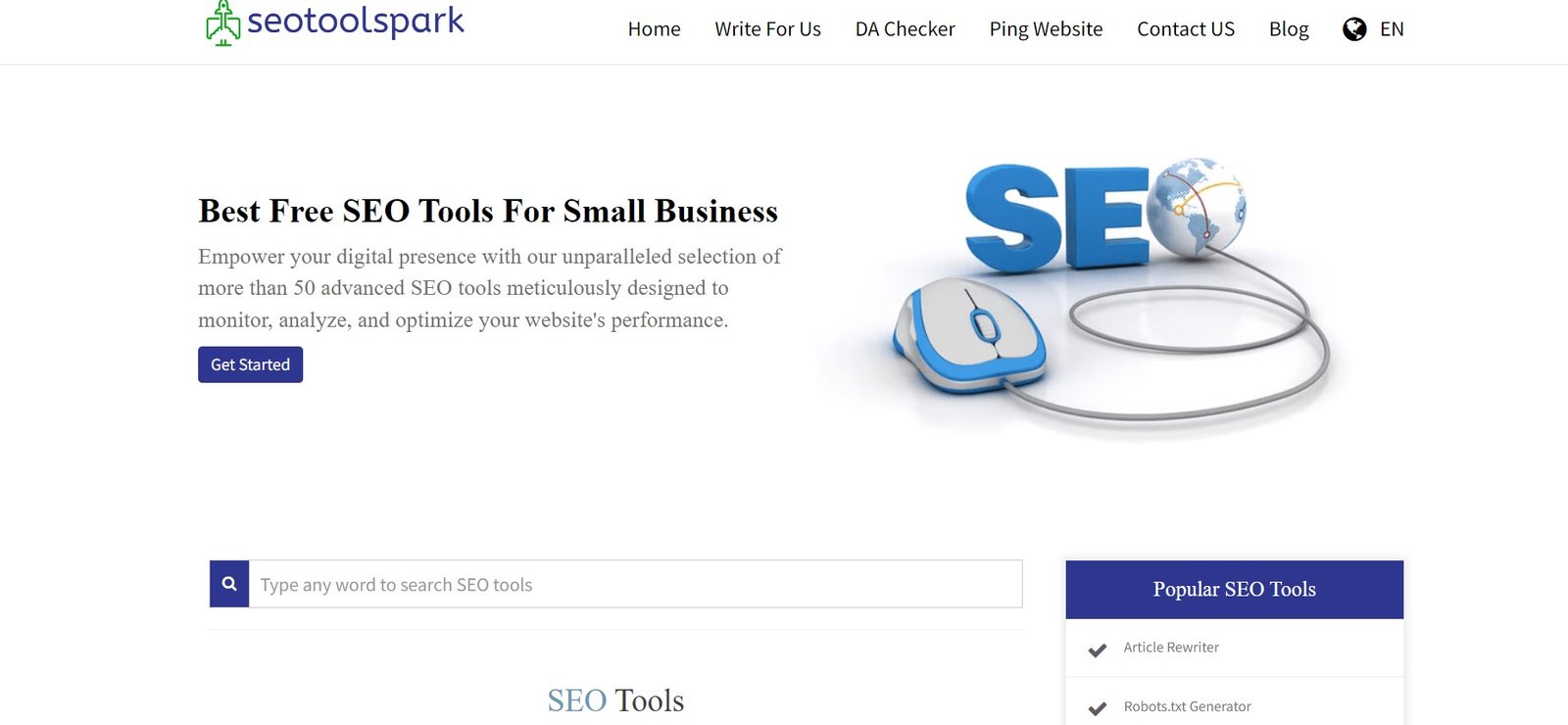


Wondering where your website ranks in Google search results? Want to track your SEO progress and find out if your optimization efforts are paying off?
Checking your Google ranking is crucial for understanding your site's search engine visibility and performance. But with over 200 ranking factors, it can be confusing to interpret your site's position.
This comprehensive guide will teach you how to check the Google ranking of a website properly in 2023.
Monitoring your website's Google ranking should be a key part of your digital marketing strategy. Here are some of the top reasons to check your site's rankings regularly:
Checking rankings will show if your SEO efforts like keyword research, link building, technical optimizations, etc. are improving your site's visibility in search engines. Comparing historical and current rankings will highlight impactful tactics.
Google rankings help uncover keyword opportunities to focus your optimization efforts on. Targeting keywords where you rank on pages 2-3 can help move your site up to page 1.
Spying on competitor rankings reveals opportunities to outrank them by doubling down on pages/keywords they outrank you for. Their ranking volatility also shows if they are scaling SEO.
An unexpected rankings drop is often the first sign of an underlying technical issue like hacking, penalties, or algorithm updates. Early checking helps with diagnosis and resolution.
Share ranking reports with bosses/clients to showcase SEO ROI and progress. This improves trust and accountability in your optimizations.
Clearly, monitoring rankings consistently provides insight to boost SEO results. Now let's see how to check rankings for your site. Backlink monitoring will give you the best results as you will get an idea how the quality of backlinks you are getting
Checking your website's position in Google searches takes just a few minutes if you follow this 4-step methodology:
Start by making a list of important target keywords for your business. Include:
Prioritize keywords that get significant search volume and traffic to your site. Avoid vague, generic terms like "shoes" in favor of precise phrases like "orthopedic walking shoes for men".
Tools like Google Keyword Planner, SEOToolsPark, and Ahrefs can help find relevant keywords to track.
The next step is to manually look up your keywords on Google. Make sure to do this from a browser where you're logged out of your Google account.
This gives the neutral, impersonal ranking results your target users see (not personalized results). Use Google's incognito mode to avoid bias.
Ideally, check rankings from different locations using a VPN tool like CyberGhost or ExpressVPN. Location impacts search results.
Now carefully go through the search results for each keyword, scanning for your website. Note the ranking position of your pages.
Make sure to check both the:
Tracking both provides a fuller picture of your visibility. Record each keyword's ranking in a spreadsheet to compare over time.
Step 4: Interpret and Improve Your Rankings
With your website's current Google rankings in hand, the last step is to analyze and build on the results:
Repeating this process monthly helps you continually refine keywords and pages to improve Google visibility.

Manually monitoring Google rankings for dozens or hundreds of keywords is extremely tedious. Luckily, several SEO tools can automate ranking checks and reporting. Here are the top 6 options:

SEOToolsPark is the go-to SEO toolkit for extensive keyword research, backlink analysis, and rank tracking. Accurate rank tracking will help you boost your ranking on Google.
Its Position Tracking tool lets you enter all your keywords to automatically check current rankings. It scans Google results daily to provide daily/weekly/monthly ranking snapshots.
You get historical rank change data, and competitor comparison, and can filter by location, device, URLs, and more. Consider upgrading to the full suite for maximum functionality.
Ahrefs also offers robust rank tracking with its Rank Tracker feature. Track rankings for up to 10,000 keywords directly in your Ahrefs dashboard.
Set location and device filters for rankings. See organic and paid results separately. Automated email alerts notify you of any drastic position changes.
Ahrefs checks rankings multiple times per day so you get timely rank data. The $999/month plans include full-rank tracking capabilities.
Moz Pro has one of the most intuitive and user-friendly Mozrank checkers available. The SERP Tracking dashboard shows current and historical rankings at a glance. Enter the important keywords and URLs you want to monitor.
Moz will check ranking positions daily and plot the trends on graphs. Compare rankings across months and export results. Moz Pro costs $99/month but comes with many other excellent SEO tools like link metrics and site audits. Perfect for both agencies and in-house SEOs.
Accuranker is a relatively new all-in-one SEO platform with excellent ranking capabilities.
The Rank Tracking module lets you check rankings for keywords, URLs, and competitors. Set location and device filters for rankings. Customizable email and Slack alerts keep you up to date on ranking changes.
Accuranker starts at $29/month so it's a budget-friendly option, especially for smaller teams and in-house SEOs. But has robust functionality on par with SEMrush and Ahrefs.
For a straightforward rank checker at a low cost, SERPwoo is a great choice.
It tracks Google rankings for your keywords and shows the position history in an easy-to-read graph. Rankings are checked from 12+ locations to account for geographic differences.
SERPwoo's basic plan costs just $15/month and lets you track up to 25 keywords. It's ideal for solopreneurs and small businesses on a tight budget.
Rank Ranger is a relatively lesser-known SEO software but its rank-tracking capabilities make it stand out. It tracks rankings across 130+ search engines, not just Google. Custom reporting and white-label reports are handy for agencies.
Starting at $99/month, Rank Ranger is reasonably priced for the amount of functionality. The Chrome extension allows single-click rank checks too.
A) Check your important keyword rankings at least once a month. Weekly checks are even better to get early warning of ranking changes. Daily checks don’t offer much incremental benefit for the effort.
A) Manually search for your target keywords, scan the Google results for your site’s position, and record the rankings. Use SEO software like SEMrush, Ahrefs, or Moz for automated checking at scale.
A) If your site doesn't appear in the top 100 Google results for a keyword, the exact ranking won't be displayed. Generally, page 3+ rankings are shown as 100+. Focus on improving to page 1 for visibility.
A) Yes, Google rankings fluctuate daily and even hourly. Many factors like search queries, location, indexing delays, and A/B testing by Google influence real-time results. Track long-term monthly trends rather than daily minutiae.
A) Keyword rankings have a strong correlation to the traffic and leads that keyword drives to your site. Page 1 rankings, especially in the top 3, send significantly more visits than page 2-3 results.
A) Google uses over 200+ ranking factors. The relevance between the search query and webpage content is the most influential signal. Create useful, informative content optimized for searcher intent to improve rankings.
Checking your Google rankings is step one. The next vital task is actually improving your rankings.
Here are proven tips to get higher Google rankings:
SEO ranking improvement takes time. However, following best practices will steadily drive your site up the Google results.
Start monitoring your Google rankings with this guide's tips. Consistent tracking provides the insights you need to refine your SEO and content strategies.
As your rankings improve month to month, so will your site's organic traffic, leads, and sales. Now get out there, start checking your site's rankings, and climb up the Google search results!
Checking your website's Google search ranking is crucial for tracking SEO success, unlocking new optimization opportunities, monitoring competitors, and diagnosing technical issues early.
While manual checking provides initial insight, using advanced SEO tools like SEOToolsPark, Ahrefs, and Moz allows you to automate ranking reports for hundreds or thousands of keywords.
Consistent ranking checks, combined with ongoing optimization efforts focused on creating high-quality content, building links, and providing the best user experience, will steadily improve your site's visibility on Google over time.
With your website ranking check, you must also keep an eye on the Domain Authority of your website, check your website's DA Now!
Now that you know how to monitor your website's Google rankings like a pro, you have the insights needed to refine your SEO strategy and climb up the search engine results pages!